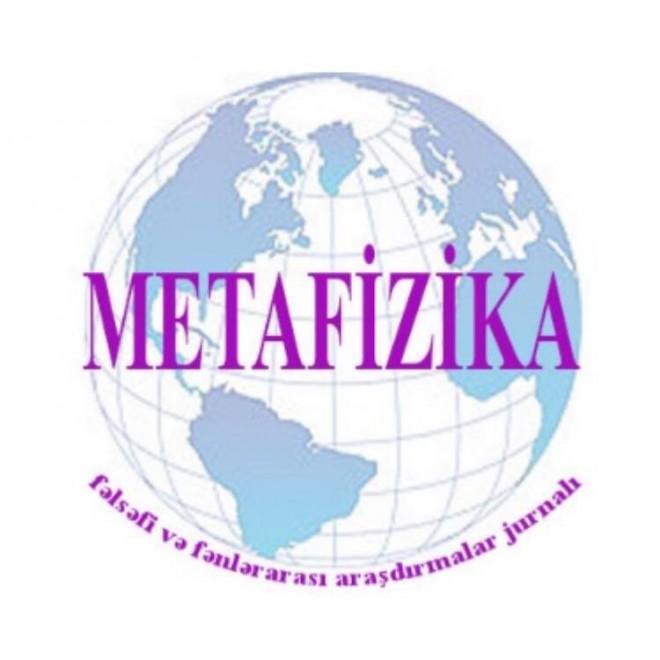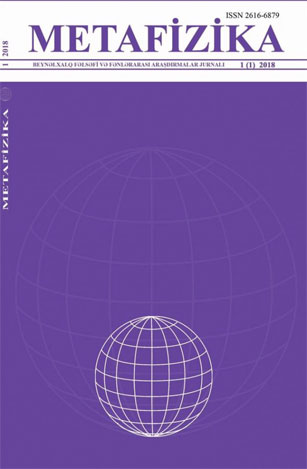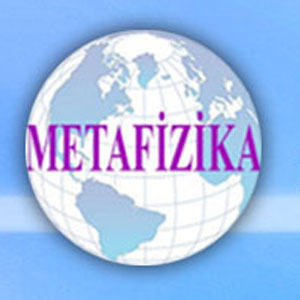Beynəlxalq məsləhətçilər
Publication Ethics and Malpractice Statement

Publication Ethics and Malpractice Statement
1. Ethical Standards for Authors
Criteria for Authorship
Authorship should be based on substantial contributions to the research, including:
- Conception and design of the study or analysis and interpretation of data.
- Drafting or revising the article for important intellectual content.
- Approval of the final version of the manuscript to be published. All authors should meet these criteria, and all those who meet these criteria should be listed as authors. The corresponding author must ensure that no one who has contributed is omitted and that all contributors have reviewed the final manuscript.
Example: Authors must provide a detailed description of each individual's contributions at the time of submission. For instance, author A contributed to data collection, author B performed the analysis, and author C wrote the manuscript.
Plagiarism Policies
The journal maintains a zero-tolerance policy towards plagiarism. Authors are required to ensure that their work is entirely original, and if they have used the work and/or words of others, this must be appropriately cited or quoted. The journal uses plagiarism detection software, and manuscripts found to have substantial plagiarism will be rejected.
Example: If an author submits an article that includes text copied from another source without citation, the submission will be immediately rejected, and the authors may be banned from future submissions.
Originality and Duplication of Research
Authors must ensure that their manuscript is an original work that has not been previously published elsewhere. Submitting the same manuscript to more than one journal simultaneously is considered unethical and unacceptable. If overlapping content is found between submitted articles and published papers, it will lead to rejection.
Example: If an author submits a study that overlaps significantly with previously published work, they must cite that work, clarify how the new manuscript differs, and justify the need for the new submission.
Data Falsification or Manipulation
Authors are prohibited from fabricating or manipulating data. Any manipulation that could mislead readers or distort the scientific record is unethical. All research data should be accurately reported, and authors must be prepared to provide raw data upon request for verification purposes.
Example: If it is discovered that an author manipulated figures or statistical data to enhance their results, this would result in a retraction of the paper and possible sanctions against the authors.
2. Ethical Standards for Editors
Editor’s Responsibility for Decision-Making
Editors are responsible for deciding which articles submitted to the journal will be published. Their decision should be guided by the quality of the manuscript, its contribution to the field, and the relevance to the journal’s scope. Editors must remain impartial and should not make decisions based on personal bias, relationships, or conflicts of interest.
Example: An editor who has a close personal or professional relationship with an author should recuse themselves from handling the manuscript to avoid bias.
Fair and Unbiased Review Process
Editors must ensure that the review process is fair and unbiased. Manuscripts should be reviewed based on their academic merit without regard to the race, gender, sexual orientation, religious beliefs, ethnic origin, citizenship, or political philosophy of the authors. Reviewers should be chosen based on their expertise and ability to provide objective feedback.
Example: If an editor discovers that a reviewer has a potential conflict of interest with the author, they should replace the reviewer to maintain the integrity of the review process.
Confidentiality Regarding Manuscripts
Editors and editorial staff must not disclose any information about a submitted manuscript to anyone other than the corresponding author, reviewers, potential reviewers, and the publisher. Confidentiality should be maintained during the entire review process, and unpublished materials disclosed in a submitted manuscript should not be used by anyone involved in the review process without the author’s explicit written consent.
3. Ethical Standards for Reviewers
Objectivity and Fairness in Peer Review
Reviewers must conduct their evaluations objectively. Personal criticism of the author is inappropriate, and reviewers should express their views clearly with supporting arguments. Reviewers should provide constructive feedback, pointing out strengths and areas for improvement, ensuring a rigorous and unbiased review process.
Example: A reviewer should avoid derogatory remarks about the author and instead focus on the scientific content and clarity of the manuscript.
Confidentiality Regarding Unpublished Data
Any manuscripts received for review must be treated as confidential documents. Reviewers should not share the manuscript with others, and the contents of the paper should not be discussed with anyone except with the permission of the editor. Reviewers must not use any unpublished information for personal research or advantage.
Example: If a reviewer uses ideas or data from a manuscript they are reviewing in their own research, this would constitute a serious breach of confidentiality and professional ethics.
Conflict of Interest Disclosure
Reviewers should disclose any conflicts of interest that could influence their evaluation of the manuscript. If a reviewer has a personal or professional relationship with the authors or if there is a potential financial conflict, they should inform the editor and recuse themselves from reviewing the manuscript.
4. Handling Complaints and Misconduct
Metafizika journal is committed to upholding the highest ethical standards in publication and ensuring a fair and transparent process for handling complaints and appeals. If you encounter any issues or have concerns, please contact us directly via email or through our Contact Page https://metafizikajurnali.az/en/elaqe/8, and we will address the matter promptly.
Procedures for Handling Allegations of Misconduct
The journal will investigate all allegations of research or publication misconduct. This includes but is not limited to plagiarism, data falsification, and ethical violations. Complaints can be made by readers, reviewers, or editors, and all complaints will be handled according to COPE guidelines. Depending on the outcome of the investigation, the manuscript may be rejected, or a published article may be retracted.
Example: If a reader informs the journal of potential plagiarism in a published article, the editorial board will review the case and take appropriate action, which may involve retraction.
Process for Handling Retractions, Corrections, or Clarifications
If errors are found in a published article that significantly affect its findings or interpretations, the journal will issue a correction. In cases of major errors or ethical violations, the article will be retracted. Retractions will be clearly labeled and linked to the original article to ensure transparency. The journal will follow COPE guidelines for handling such issues.
Example: If a study is later found to have errors in data interpretation that significantly affect its conclusions, a correction or retraction notice will be issued.
5. Publication Decisions
Criteria Used for Accepting or Rejecting Papers
The final decision regarding the acceptance or rejection of a manuscript is based on its academic merit, relevance to the journal’s scope, originality, and contribution to the field. Manuscripts that do not meet the journal’s ethical standards or scientific rigor will be rejected. Manuscripts with significant errors, lack of clarity, or that do not adhere to submission guidelines may be returned for revision or rejected.
Example: An article that presents novel findings but lacks sufficient data analysis may be returned for major revisions rather than being immediately rejected.
The Process of Peer Review and Decision-Making Transparency
The journal employs a rigorous, double-blind peer-review process where both the reviewers and the authors remain anonymous to ensure objectivity. Reviewers are selected based on their expertise, and the editors make the final decision based on the reviewers’ reports. Authors will be provided with constructive feedback and reasons for the editorial decision.
Example: After peer review, an author receives two reports from reviewers with specific suggestions for improving the manuscript. The editor summarizes these points and provides a decision of either revision or rejection based on this feedback.
2. Transparency and Guidelines
- Metafizika ensures that all details of the peer-review process are available on its website. The guidelines include:
- Expectations from authors during submission, such as formatting and ethical declarations.
- Reviewer responsibilities, such as providing timely and constructive feedback, maintaining confidentiality, and adhering to ethical standards.
- Conflict of interest policies to ensure reviewers or editors with personal stakes in the paper refrain from involvement.
2.1 Educational Resources for Reviewers and Authors:
- The journal provides resources on best practices in academic publishing, ensuring that contributors and reviewers are well-informed about ethical and methodological standards.
Publication Frequency and Schedule
Quarterly Publication:
- Metafizika adheres to a strict quarterly publication schedule, producing four issues annually—one for each quarter. The issues are typically released on consistent dates to maintain regularity, such as at the end of March, June, September, and December.
- This predictable schedule ensures that contributors, readers, and indexers can rely on the journal for timely updates in the fields of metaphysics, social sciences, and related interdisciplinary studies.
Importance of Regularity:
- A regular publication cycle is crucial for maintaining the journal's reputation as a reliable source of academic information.
- It enhances the journal’s eligibility for indexing in international bibliographic databases such as Scopus and Web of Science, where consistency is a key criterion for inclusion.
- Quarterly publication allows for timely dissemination of recent research findings while giving authors sufficient opportunities to submit throughout the year.
Archival Practices
Digital Archive Availability:
- Past issues of Metafizika are systematically archived on the journal's official website, providing unrestricted access to readers and researchers.
- Each archived issue includes the full-text articles, along with metadata such as titles, abstracts, keywords, and author affiliations. This structured presentation ensures discoverability and usability.
- The archives serve as a repository of knowledge, enabling longitudinal studies in the journal’s focus areas and showcasing its historical contribution to academia.
Preservation and Accessibility:
- Metafizika leverages digital preservation standards to ensure that its archives remain accessible long-term. These measures may include the use of formats such as PDF/A for stability and compliance with global archiving initiatives.
- The journal is also likely integrated with platforms such as CrossRef, which assigns Digital Object Identifiers (DOIs) to all articles, ensuring persistent access regardless of changes to the journal’s website infrastructure.
Benefits of Regularity and Archiving
1. Academic Reliability:
- Regular publication signals the journal's commitment to its contributors and readers, ensuring the consistent availability of high-quality research.
- Timely dissemination aligns with the needs of a dynamic academic community, which values up-to-date insights and findings.
2. Citation Growth:
- Quarterly publication creates more opportunities for articles to be cited, which is critical for boosting the journal’s impact and visibility in academic circles.
3. Compliance with Indexing Requirements:
- Indexing organizations like Scopus and Web of Science prioritize journals with consistent publication schedules and reliable archives, as these indicate operational stability and scholarly integrity.
4. Author Engagement:
- A regular publishing schedule encourages continuous submissions, as authors feel confident that their work will be evaluated and published promptly if accepted.
5. Historical Record for Metaphysical Studies:
- The archive of past issues serves as a critical resource for researchers tracing the evolution of ideas and trends in metaphysics, fostering interdisciplinary dialogue.
Future Enhancements
- As part of ongoing improvements, Metafizika could consider additional features like open-access repositories, indexing with specialized subject databases, and partnerships with global archiving platforms such as LOCKSS or Portico for enhanced digital preservation.
- Expanding the search functionality within the archives, such as full-text and semantic search options, would further enhance accessibility.
Multilingual Publication
Languages Offered:
- Metafizika publishes articles in six major languages:
- English: For reaching a global scholarly audience.
- Russian: Catering to a large academic community in Russia and post-Soviet regions.
- Azerbaijani: As the journal originates from Azerbaijan, this supports local and regional scholarship.
- Turkish: Engaging with the extensive Turkish-speaking academic world.
- Persian: Reaching scholars in Iran and other Persian-speaking areas.
- Arabic: Serving researchers and intellectuals in the Arab world.
This multilingual approach reflects the journal's commitment to fostering an inclusive and diverse scholarly community. It also aligns with its interdisciplinary and cross-cultural focus, particularly in the social sciences and humanities.
Ensuring Global Accessibility
English as the Common Language:
- Regardless of the language of the article, all titles, abstracts, and keywords are translated into English. This ensures:
- International readers can understand the core content of each article, even if the full text is in a different language.
- Enhanced discoverability through indexing services like Scopus, where English metadata is often a requirement.
Benefits of English Metadata:
- Facilitates citation and cross-referencing across diverse academic communities.
- Makes the journal's contributions accessible to researchers in countries where English is the primary or secondary academic language.
- Complies with the expectations of major indexing platforms and databases for standardized metadata.
Editorial and Translation Quality
1. Professional Translation and Editing Services:
- The journal employs or collaborates with professional translators and language editors to ensure accuracy and consistency in translations.
- Abstracts and keywords are translated with technical precision to reflect the nuances of the original work, particularly for complex metaphysical and interdisciplinary concepts.
2. Language Quality Checks:
- Articles in English undergo rigorous language editing to meet international academic standards.
- For non-English manuscripts, reviewers proficient in the specific language ensure linguistic and conceptual clarity.
Relevance to International Indexing
The multilingual publication strategy and the use of English abstracts and metadata enhance the journal's chances of inclusion in indexing databases such as Scopus, Web of Science, and others. These platforms prioritize journals that demonstrate accessibility to a global audience.
Future Enhancements for Global Reach
- Expanding the use of multilingual summaries for all articles to include brief translations in the six publishing languages, further aiding accessibility.
- Leveraging machine translation tools for preliminary translations while ensuring human verification for accuracy.
- Enhancing online search functionality by incorporating multilingual keyword indexing.
- Tarix:2022-01-27





